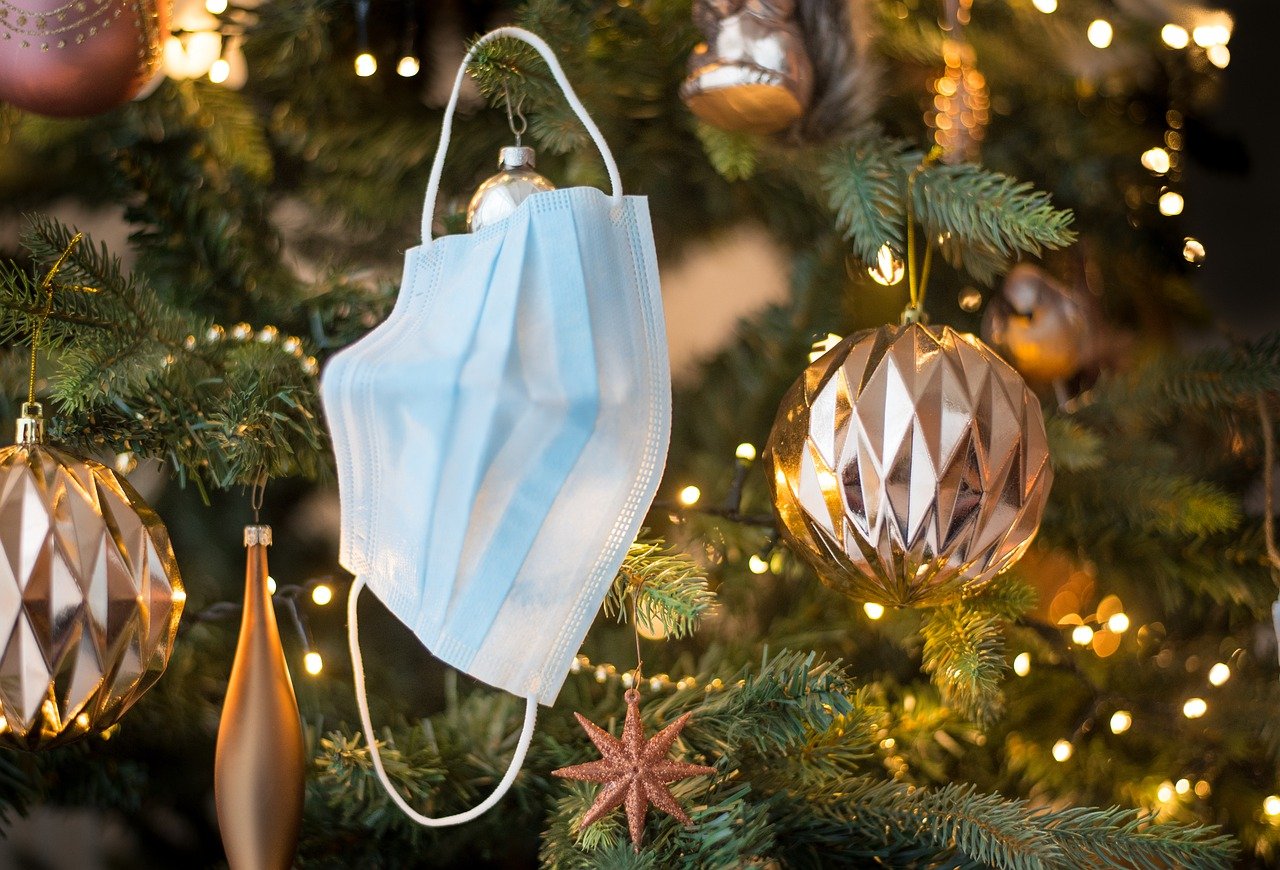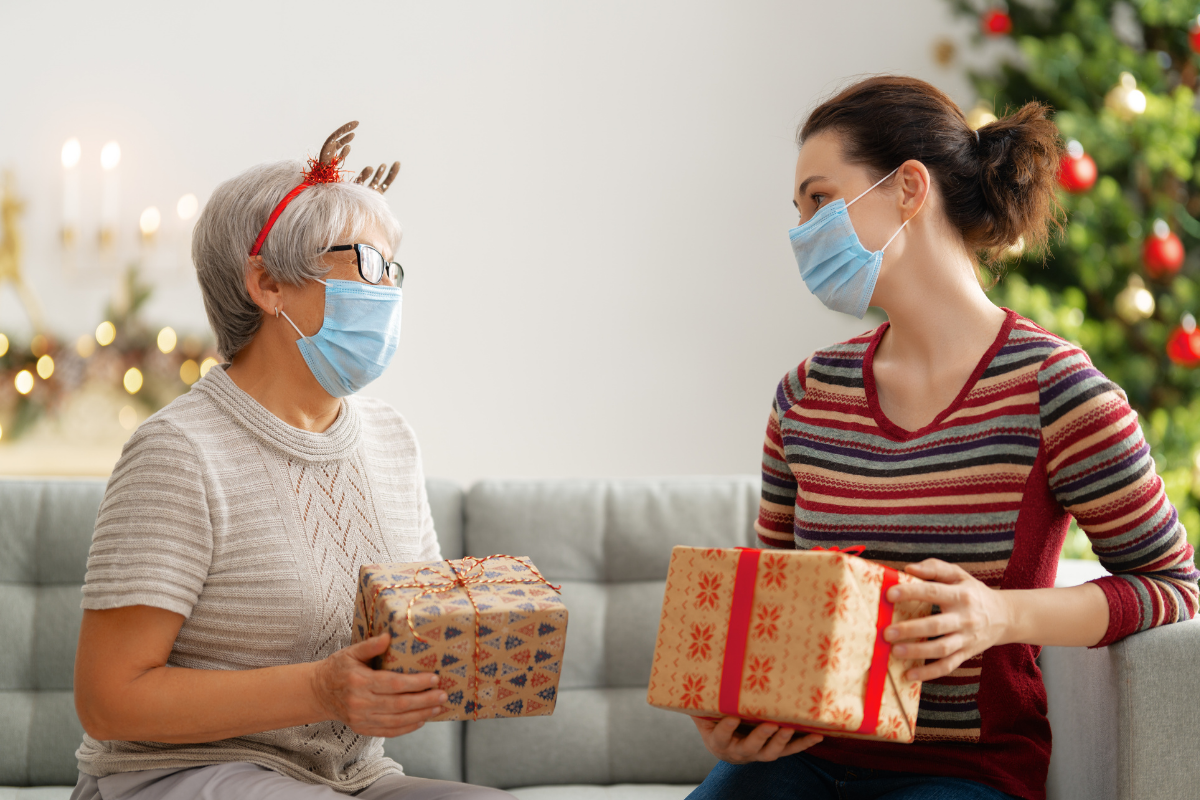
The ways Christmas is celebrated around the world in 2020 look a little different due to the coronavirus pandemic.
“It will be a different Christmas, but that does not mean that it cannot be a merry one,” Dr. Hans Kluge, regional director of the World Health Organization's (WHO) Europe office, previously said.
“Cherish the festive season with those close to you. If it’s a large gathering, with vulnerable people, you might postpone that gathering until you can safely gather. Despite the cold, if local restrictions permit, gather outside with loved ones for picnics in the park,” he said.
"Outdoor activities are generally safe," said Dr. Dean Winslow, an infectious disease doctor and professor of medicine at the Stanford University Medical Center in Stanford, California. "They're not zero risk but lower risk, especially if people are wearing face coverings and stay a good six feet apart."
He recommends activities like taking walks, driving around a neighborhood to view Christmas lights and other decorations, or doing household activities like Christmas movie marathons or preparing holiday-themed desserts.
"Those are really nice things and thinking of that brings back very fond memories of raising my own kids," he said. "Basically, try to do things that you can do outdoors and keep your face covered and keep distance from people outside of your family unit. Those things would be relatively low risk."
Holiday celebration guidelines

In the U.K, some governments have already announced restrictions that could help contain the spread of the coronavirus.
Prime Minister Mark Rutte announced that the Netherlands will go into a strict lockdown for five weeks, from 15 December to 19 January.
Meanwhile, between 23 and 27 December (or 22 to 28 December in Northern Ireland), people will be able to mix indoors and stay overnight. However, they can only do this within their "Christmas bubbles." Each bubble should have a maximum of three households in most of the U.K. or up to eight people in Scotland.
These bubbles can meet in worship areas and outdoor public spaces, but people cannot mix with two households on Christmas Day and two different ones on Boxing Day, for example.
Meanwhile, several regions in Italy are under partial lockdown while a ban on travel between different regions from 21 December to 6 January has been announced.
People in Italy are not allowed to leave their home towns on Christmas Day, Boxing Day, and New Year's Day except if they need to work or have medical reasons and emergencies. Midnight Mass and the Italian Christmas market have been banned.
In France, there will be a nationwide curfew from 8:00 p.m. to 06:00 a.m., which will be lifted on Christmas Eve but not on New Year's Eve.
Germany is on a hard lockdown over the Christmas period, with non-essential shops and schools closed from 16 December to 10 January. Gatherings on Christmas Eve, Christmas Day, New Year's Eve, and New Year's Day in Spain will be limited to 10 people
In Russia, there are new restriction measures that will last until 15 January, including early closing times for restaurants and cafes and a 25% capacity limit at cinemas and theatres.
In the U.S., the Centers for Disease Control and Prevention (CDC) released its guidelines for holiday celebrations. It encourages celebrating virtually or with members of one's own household as it poses the lowest risk for spread.
For gatherings, CDC says the hosts must limit the number of guests as much as possible to allow people from different households to be at least 6 feet apart at all times. Families are encouraged to hold outdoor instead of indoor gatherings. Guests must "bring food and drinks for themselves and for members of their own household only; avoid potluck-style gatherings," CDC says.
Christmas traditions worldwide

The ways Christmas is celebrated around the world in 2020 could still be safe and fun at the same time. Some activities, like preparing the usual meals and honoring traditions at home, could still be enjoyed--though not with a big crowd.
In Poland, Christmas Eve dinner or (Wigilia) starts with sharing the Oplatek, the paper-thin square wafer made of flour and water with an image of the Nativity on it.
In Slovakia, traditionalists celebrate Christmas with carp. Instead of picking it up at supermarkets, they let fish live in the bathtub for a couple of days before preparing it.
Other Christmas activities families can enjoy this year are decorating their houses, cooking festive meals, hosting karaoke sessions, and holding virtual holiday party games with other families via Zoom. People can send thoughtful care packages, cards, or email surprises like digital gift cards to a local shop or restaurant to one another.
This is also a great time to create new traditions, such as cooking together virtually, trying DIY festive drinks and cocktails, and sending food to friends, neighbors, and relatives.
Fun group activities, like scavenger hunts, dancing and listening to music, and family-friendly video games, are also safe and entertaining. All these can be done through virtual chat parties and videoconferencing.
What about Santa Claus for kids? There are virtual experiences that can help children feel the presence of Santa Claus. Kids can sign up for visits to Macy's "Santaland" at home. Other stores and malls set up contactless visits to Santa Claus, who sits behind a clear shield and wears a protective visor. Sittercity.com offers free, 50-minute virtual visits.
Kids can also join "JingleRing," where they can have a short phone conversation or Zoom call with Mr. and Mrs. Claus.
Meanwhile, the United States Postal Service prepared a program where children can write letters to Santa and receive a personalized response.
For holiday travels, people are generally advised to stay home. But for those who do travel should get a viral test (PCR or rapid antigen test) one to three days before travel and three to five days after travel. Travelers are advised to check whether the state they are traveling to has quarantine or testing requirements they need to adhere to when they arrive.






